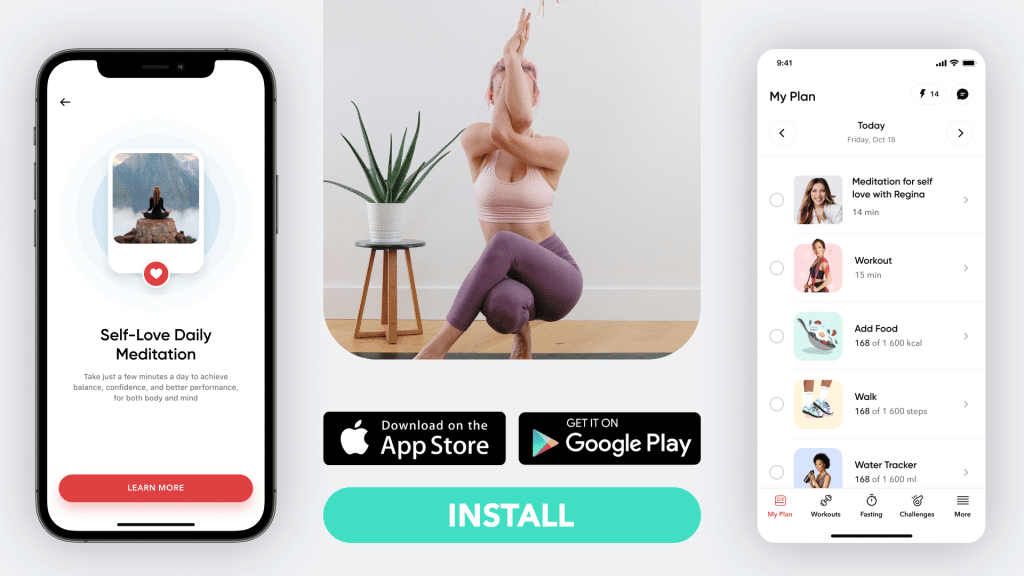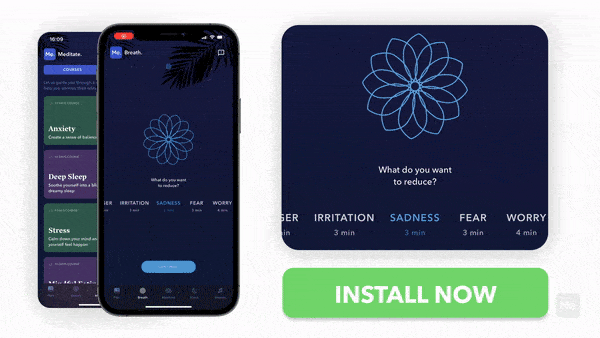Our bodies weren’t built to handle constant exhaustion. In a time of longer working hours together with less support from management, burnout has become an increasingly common problem. Routinely feeling exhausted can affect your relationships, your productivity, and your health. Fortunately, there are small steps you can take to help prevent or decrease symptoms of exhaustion—and prevent burnout. Read about burnout prevention strategies below.
What Is Burnout?
Burnout is essentially severe and chronic stress. It occurs when you’re under prolonged stress without adequate recovery time (16).
The stress response is a natural physiological process that occurs when you face a challenge, whether it’s an external challenge like taking on too much at work or an internal one like dealing with the aftermath of trauma. When you’re stressed, your body releases chemicals and hormones to help you meet the internal or external demand (12).
This natural process is called the stress response, and it’s mediated by your nervous system, brain, and endocrine (hormone) system.
The problem occurs when you’re under prolonged stress (chronic stress) without receiving adequate support or coping strategies to help you recover. When this happens, your body remains in the stress response and you experience symptoms like constant exhaustion, high anxiety, loss of motivation or focus, and/or feelings of burnout (5).
What Are The Signs And Symptoms Of Burnout?
Most of us have bad days from time to time. But if you feel exhausted, unfocused, or uninterested with your usual tasks for more than two weeks, it’s possible that you’re experiencing the effects of burnout.
The signs and symptoms of burnout vary depending on the person. Here are some common signs:
Physical Signs Of Burnout
Your body is good at letting you know when something is wrong, so pay attention to how it feels. Physical signs of burnout may include:
Brain Fog/Inability To Focus
When you’re stressed or burned out, your brain has a harder time focusing on tasks that are typically easy for you. You may feel a lack of motivation and struggle with brain fog, forgetting things more often than usual.
If you’re burned out at work, it may be harder for you to focus on tasks that are important for your career advancement.
Even if your job isn’t strenuous, burnout can still cause problems with concentration and memory since it’s such an exhausting state to live in.
Exhaustion
You know that feeling when you just don’t want to get out of bed? You might feel constantly tired or overwhelmed, even after getting enough sleep.
If you’re experiencing burnout, your body is working overtime even while you aren’t actually doing anything. It’s possible that you’re sleeping more than normal but still struggling to perform every day (5).
Being constantly tired can affect your relationships, your productivity, and your health—and it’s not great for anyone around you either.
Read More: Meditation And Stress: How Can Meditating Reduce Anxiety?
Frequent Aches And Pains
If you’re feeling chronic pain or discomfort that doesn’t seem to have an obvious cause, it’s possible that you’re burned out.
Headaches, back pain, stomach aches, and the like are all possible signs of burnout (15).
Change In Appetite
This varies depending on the individual, but it’s possible that you’re less interested in food when you’re burned out. You might not feel hungry very often and when you do, your meal doesn’t taste as good as it used to.
Change In Eating Habits
When we’re stressed or burnt out, we tend to either eat a lot or not eat at all. If you find yourself overeating or comfort eating often, it’s a sign that something is off with your stress levels (14).
Lower Immunity
When you’re stressed, your immune system works overtime to protect your body (13). When you stop giving it the resources it needs (like sleep and good food), it’s weaker than normal. This can cause you to get sick more often or easily when exposed to germs that wouldn’t usually affect you.
Emotional Signs Of Burnout
While stress and burnout can affect the way you think, feel, and act, there are some more obvious signs of emotional burnout. If you’re struggling with these issues for more than two weeks, it’s very likely that you’re burnt out:
Lack Of Motivation
When you’re burned out, your drive to complete tasks and goals declines. You may find yourself avoiding work-related activities or procrastinating on tasks that you don’t want to do.
Constant Anxiety
When we’re stressed, our bodies release the hormone cortisol which helps regulate blood sugar and maintain stable energy levels—but excess cortisol can lead to anxiety and an increase in blood pressure (2).
When your stress levels are high, it’s common to feel overwhelmed or on edge more often than not.
You may struggle with irritability and experience mood swings that seem out of control.
Feeling Out Of Control
Burnout can make us feel like everything is out of our control—and when we’re stressed for a long period of time, that feeling only gets worse.
If you feel like your burnout is getting the best of you, know that you’re not alone—and it’s easy to overcome when you take action.
Something tells us you often forget to put all the everyday hustle and bustle on hold and simply concentrate on yourself. It’s time to straighten out your priorities! Take a moment to heal, process your emotions, ground yourself, release all the pent-up tension and recharge with the BetterMe: Meditation & Sleep app before getting back into the race of life!
Cynical Outlook
When we’re burnt out, it’s hard to see the good in anything. Your friends might describe you as more negative or pessimistic, and while you used to find comfort in your day-to-day activities, now they only make you feel worn down.
Feeling Helpless
We might feel like there’s no way to escape the feelings of burnout. We may not be able to see a way out or come up with suitable solutions on our own, and it can make us feel like we’re stuck at square one.
Self-Doubt
When we’re burnt out, we struggle to think positively about ourselves and our abilities. We may struggle with believing in ourselves and we might feel like we’ve lost our motivation and sense of purpose—and that the only thing to do is give up completely.
Behavioral Signs Of Burnout
Burnout can also cause changes in your behavior. Some common behavioral signs include:
Irritability
It’s normal for us to get irritated or angry sometimes, but if you’re noticing that it’s happening more often than usual, it’s a sign you need to pay attention to.
Emotional Outbursts
Everyone occasionally has an outburst of emotion, whether it’s laughing too loudly or crying at the drop of a hat. But if these moments are happening more frequently than normal, you might be struggling with stress or burnout.
Loss Of Interest In Hobbies
Imagine someone investing a lot of time and energy into their favorite hobby—and then suddenly losing interest in it entirely. This may seem extreme, but if you’re noticing that your usual passions are no longer exciting to you, burnout could be the cause.
Withdrawal From Others
If you’re feeling too overwhelmed to stay connected to your friends and family, it’s possible that burnout is behind your shift in attitude. You might even avoid going out or socializing with others.
Overindulging In Drugs Or Alcohol
Alcohol and drugs can be a way of coping with stress, but overindulging is another sign that you’re too overwhelmed (3). At first it may seem like drinking or getting high helps you relax, but the feelings of burnout will only intensify if this becomes a habit.
Skipping Work Or School
Missing deadlines, failing to complete assignments on time, or skipping school or work are all signs that you’re overwhelmed with stress.
Read More: Meditation Breathing Techniques: A Must-Do In Stress Management
What Causes Burnout?
Burnout can have work-related, lifestyle, or personality causes.
Some work-related causes of burnout include:
- Feeling like you have little or no control over your work
- Lack of recognition by your superiors
- Manipulative or unsupportive co-workers
- Having unrealistic job expectations
- Working in a high-pressure environment
- Doing monotonous work
Lifestyle causes of burnout include:
- Having a poor diet and not getting enough sleep or exercise
- Struggling with social isolation
- Unhealthy habits, like smoking cigarettes or overusing drugs or alcohol
- Not getting help from others
Finally, personality causes include:
- Being a perfectionist
- Having few coping mechanisms
- Having a pessimistic outlook on life
- Being easily overwhelmed by things
- Being overly controlling and reluctant to delegate
- Being highly sensitive to criticism
- Having low self-esteem
What You Can Do To Overcome Burnout
Whether you’ve identified the signs or are already burnt out, there are steps you can take to overcome it. This might not be easy—and you may find yourself feeling overwhelmed as a result of burnout—but if you’re determined, you’ll soon see the benefits.
1. Ask For Help
Burnout can be an isolating experience, but you don’t have to do it alone. Talk to your friends and family members about how you’re feeling, or ask for help at work if the stress is affecting your performance.
The person you turn to doesn’t have to be able to “fix” your burnout—they simply need to be willing to listen and provide support.
2. Practice Self-Care
Taking care of your physical, emotional, spiritual, and mental health is vital when it comes to overcoming burnout. Remember that self-care means different things for different people; we all enjoy spending time differently and require different things to feel our best.
Some ways of practicing self-care include:
- Getting enough sleep and exercise each day
- Eating foods that are good for both your body and mind
- Spending time with loved ones
- Journaling or meditating
- Taking a relaxing bath or shower every night
- Reading a book or magazine you enjoy
… And the list goes on! Take some time to think about how you can practice self-care in your life. The benefits will be well worth it.
Running a never-ending rat race, shoving trauma further and further away, falling into self-harming thought patterns, living life that’s eclipsed by constant anxiety and fear – this is what an average person goes through every day. Nor addressing it will only pull you deeper into a downward spiral. BetterMe: Meditation & Sleep app will help you gain a new perspective on life and help you regain that long-lost internal balance!
3. Reframe Your Mindset
When you’re burnt out, it’s easy to feel pessimistic about your job or other aspects of your life. But this perspective doesn’t have to be permanent!
While you may not be able to change your situation immediately to relieve burnout, changing your mindset can go a long way in making it easier to cope with difficult circumstances (4).
Here are some tips for reframing your mindset:
- Identify things you’re grateful for in your life, even if they seem small. For example, you might be grateful that there’s clean water available to drink or that someone brought pizza home for dinner last night.
- Make a conscious effort to find the silver lining in challenging situations. Someone who’s burned out might see an upcoming project as a chore, but reframing it as an opportunity for growth can help you feel more excited by the task at hand.
- Remember that negative thoughts and emotions are normal, and everyone experiences them from time to time.
4. Prioritize
When you’re burnt out, it can be hard to motivate yourself to focus on anything other than getting through the day. This is why it’s critical that you prioritize your mental health and well-being.
Making a list of things that are most important to you can help you feel more in control and stay focused on taking care of yourself while you’re feeling overwhelmed.
Here are some steps to take to ensure you’re directing your energy to the things that matter most:
- Set boundaries – don’t overextend yourself. Tell people you have other priorities now, and you’re only available for certain tasks.
- Set a cut-off time and stick to it. Stop working and doing chores at a certain time each day, and make sure you don’t spend every weekend exhausted from thinking about upcoming work deadlines.
- Remind yourself that you can’t do everything, and no one expects you to.
5. Take A Break
While it might seem counterintuitive, taking a long break from your responsibilities can actually help you overcome burnout faster than trying to power through it. This is because your body and mind need time to recover from the stress of being burnt out.
When deciding how much time you should take off, consider the severity of your burnout. If it’s just mild or moderate burnout, you might just need a few days away from work to recharge. If you’re suffering from severe burn out, you may benefit from taking off several weeks or months.
There are many ways to spend time outside of work during a break, including spending time with family or friends, exploring new hobbies, or taking a trip.
6. Nourish Your Creative Side
Creativity is a powerful antidote to burnout. Many of us get caught up in our day-to-day lives and forget to make time for the things we truly enjoy, but welcoming creativity back into your life can help you feel refreshed and renewed.
At first, try something simple like painting or writing in a journal. As you feel more comfortable with this creative outlet, explore other possibilities like photography or sculpting.
Make time for creativity on a regular basis. You don’t have to wait until you’re burnt out to set aside time for something fun! At first, try scheduling 30 minutes to an hour each week specifically for your creative pursuits.
7. Nourish Your Body With The Right Foods
Food is fuel for both our bodies and minds, so fueling your body with the right types of food is essential for feeling better.
When you’re exhausted and stressed, it can be tempting to reach for junk food or comfort foods like ice cream or macaroni and cheese. While these foods might taste good at the moment, they can actually increase feelings of sadness, irritability, and exhaustion (11).
Instead of turning to foods that make you feel even worse, try these tips for nourishing your body with the right kinds of food (6):
- Eat breakfast every day, as it can help reduce feelings of fatigue and boost your energy.
- Make sure you’re getting enough protein at each meal. Protein helps stabilize blood sugar levels and prevents you from feeling tired or grouchy.
- Eat lots of fresh fruits and vegetables, as they contain antioxidants and fiber that your body needs in order to stay healthy and happy.
- Drink a lot of water. Staying hydrated is necessary for your body to function.
- Don’t drink too much caffeine or alcohol. While these drinks might make you feel better in the short-term, they can actually lead to increased feelings of stress over time (1).
8. Exercise Regularly (But Don’t Overdo It)
Exercise is one of the best ways to relieve stress and improve your mood, but it’s easy to overdo it when you’re stressed out (8). Make sure you’re exercising in a healthy way that allows your body time to recover and doesn’t add more stress than you can handle.
Follow these tips for staying active without overexerting:
- If possible, try to get at least 30 minutes of physical activity every day.
- Do high-intensity interval training, which alternates between periods of intense exercise and light cardio. This type of workout can help you feel energized, strong, and more relaxed.
- Listen to your body and push yourself to the limit, but don’t go overboard. Make sure you allow your body time to recover and rest in between workouts.
9. Spend Quality Time With Others
Reaching out to other people is one of the best ways to get through burnout and feel better emotionally. Being around other people can help you feel less alone, while helping yourself to others can boost your mood and make you feel empowered.
When you’re burnt out, it’s easy to withdraw into isolation, but this only makes things worse. Reach out to other people who support you and will be there for you when you need them the most.
If possible, try spending quality time with friends or family members each day. Make plans to spend time with others or just call a loved one and check in.
If you’re feeling burned out at work, don’t forget about your coworkers. Reach out for support from people you know, even if they aren’t the most understanding or supportive people on your team. Sometimes you need to ask for help in order to get it.
10.Sleep Well Each Night
Strive for seven or more hours of sleep each night, as this is the amount of time your body needs to recharge and recover from a stressful day. It can be tempting to push yourself to stay up late when you’re burnt out, but this will only make you feel worse in the long-run.
Make an effort to go to sleep and wake up at the same time each day, as this will help your body get into a regular rhythm (10).
If you’re having problems falling asleep or staying asleep, try these tips for getting better rest (9):
- Make sure your room is cool, dark, and comfortable.
- Avoid spending time on your phone before bed.
- Drink chamomile tea before bed.
- Don’t eat spicy, greasy, or high-fat foods right before going to sleep.
- Don’t drink too many liquids at night, as this can make it difficult for your body to stay hydrated throughout the night.
11. Practice Mindfulness And Meditation
Stressful emotions like anxiety, sadness, and anger are a normal part of life but can feel overwhelming when you’re burnt out. Mindfulness and meditation are two activities that can help you handle difficult emotions in a healthy way, bringing more peace and calm into your life (7).
Practice mindfulness by taking the time to notice the present moment without any distractions or judgment.
Meditate for 10 or more minutes each day, focusing on your breathing as it comes in and goes out of your body.
- If you’re new to mindfulness or meditation, try these tips for getting started:
- Choose activities that are relaxing to you, like walking, listening to music, or taking a bath. Avoid anything too stimulating or jarring.
- Sit comfortably with your back straight but not tense, allowing yourself to breathe naturally.
- Start small by just committing to five minutes of mindfulness or meditation every day, then work your way up to longer periods.
- Try recording yourself reading scripts for mindfulness and meditation so you can listen to them and practice even when it’s not possible to be by yourself.
The Bottom Line
Next time you start to feel burnt out, don’t ignore the warning signs. Take action when you feel overwhelmed and follow these simple tips for coping with a burnout in your life. With some creativity, determination, and support from others, you can get through even the toughest times.
DISCLAIMER:
This article is intended for general informational purposes only and does not serve to address individual circumstances. It is not a substitute for professional advice or help and should not be relied on for making any kind of decision-making. Any action taken as a direct or indirect result of the information in this article is entirely at your own risk and is your sole responsibility.
BetterMe, its content staff, and its medical advisors accept no responsibility for inaccuracies, errors, misstatements, inconsistencies, or omissions and specifically disclaim any liability, loss or risk, personal, professional or otherwise, which may be incurred as a consequence, directly or indirectly, of the use and/or application of any content.
You should always seek the advice of your physician or other qualified health provider with any questions you may have regarding a medical condition or your specific situation. Never disregard professional medical advice or delay seeking it because of BetterMe content. If you suspect or think you may have a medical emergency, call your doctor.
SOURCES:
- Caffeine consumption and self-assessed stress, anxiety, and depression in secondary school children (2015, ncbi.nlm.nih.gov)
- Central effects of stress hormones in health and disease: understanding the protective and damaging effects of stress and stress mediators (2008, ncbi.nlm.nih.gov)
- Chronic Stress, Drug Use, and Vulnerability to Addiction (2008, ncbi.nlm.nih.gov)
- Delineating the relationship between stress mindset and primary appraisals: preliminary findings (2016, springeropen.com)
- Depression: What is burnout? (2020, ncbi.nlm.nih.gov)
- Diet quality, stress and common mental health problems: A cohort study of 121,008 adults (2021, sciencedirect.com)
- Effects of mindfulness on psychological health: A review of empirical studies(2011, sciencedirect.com)
- Exercise for Mental Health (2006, ncbi.nlm.nih.gov)
- Healthy Sleep Tips (2021, sleepfoundation.org)
- How to Reset Your Sleep Routine: Tips & Tricks (2021, sleepfoundation.org)
- Mood, food, and obesity | Psychology (2014, frontiersin.org)
- Physiology, Stress Reaction (2021, ncbi.nlm.nih.gov)
- Psychological Stress and the Human Immune System: A Meta-Analytic Study of 30 Years of Inquiry (2004, ncbi.nlm.nih.gov)
- Stress and Eating Behaviors (2014, ncbi.nlm.nih.gov)
- The Relationship Between Burnout, Depression, and Anxiety: A Systematic Review and Meta-Analysis | Psychology (2019, frontiersin.org)
- Understanding the burnout experience: recent research and its implications for psychiatry (2016, ncbi.nlm.nih.gov)





















